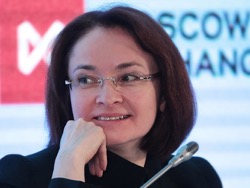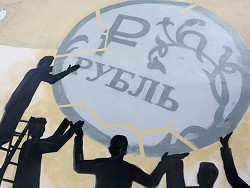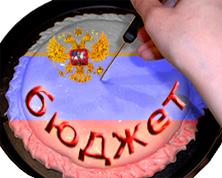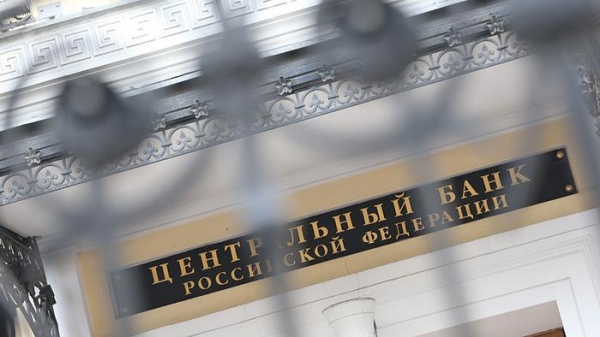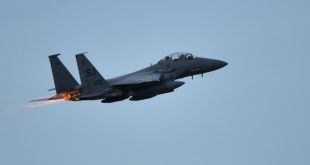
The Central Bank of Russia decided to leave its key interest rate unchanged after a small decline in June, as a weaker ruble increased the likelihood that inflation will exceed the target level next year amid uncertainty in matters of wages and budgetary policies.
The key rate remained at 10.5 percent, according to the statement the regulator published on Friday, July 29, which corresponds to the projections 29 of the 39 economists polled by “Bloomberg”. 10 of the surveyed economists predicted the reduction of the key rate by 50 basis points.
“The Bank of Russia will consider the possibility of further reduction of the key rate, assessing the risk of inflation and compliance with the dynamics of the slowdown in inflation, the forecasted trajectory,” the statement reads.
Having made the decision to refrain from further reduction of the key rate once in June it was lowered for the first time in nearly a year, Central Bank Chairman Elvira Nabiullina will be able to observe the impact on the level of inflation the adverse ruble month of December, which is associated with the approximation of the price for oil 40 dollars for barrel. The Board meeting also was an excellent opportunity to demonstrate the independence of the Central Bank, whose loose policy has been in doubt last week when President Vladimir Putin expressed his concern about the strengthening of the ruble in the period of volatility in oil prices.
“Many factors point to the need to leave key rates unchanged: inflation still above 7%, the growth of wages covers it, the uncertainty surrounding fiscal policy remains high and the ruble weakens,” he wrote in his email, chief economist for Russia at ZAO UniCredit Bank Artem Arkhipov before making a decision. The hurry with a reduction in rates can mean for the Central Bank reducing its ability to maneuver at the next meeting”.
Ruble, oil
Ruble played the position after the announcement of the decision of the Central Bank and was trading 0.5% lower against the dollar at the level of 66,9225 of the ruble. In this months ruble still ranks sixth among the currencies with the worst performance, as its rate against the dollar has declined for eight of the last nine days. This year, the Russian currency rose nearly 10% after falling 20% in 2015. In June it recorded the most significant decline in oil prices during the year.
Because the Russian economy is gradually approaching the end of the recession, the Central Bank of Russia again draws attention to inflation risks. The depreciation of the ruble complicates the task of slowing the pace of price growth to 4% in 2017, following its rise in June, resulting in the maximum value over the last 10 months, while nominal wages increased faster than prices.
In June, prices rose by 7.5% in comparison with last year, which boosted inflation expectations for the first time since Jan. Nabiullina has refrained from in order to announce the beginning of a new cycle of policy easing after the rate cut in June, though, according to the statement of the regulator, he “would consider” further reduction of the key rate, if inflation dynamics and the slowing price increases will match the forecasts.
Budget risks
Inflation remains under question in view of uncertainty surrounding fiscal policy. Although the government agreed to freeze budget spending in the next three years at the level of 2016, the Cabinet continues to discuss this topic.
The restoration of relations with Turkey may give authorities the ability to mitigate restrictions on food imports, which according to the company “VTB-Capital”, will have a positive impact on the level of inflation, reducing it by approximately 0.3%.
“Fiscal policy and the state of international relations point to the possibility of the downward trend in price growth, however, these changes still extended and doubtful,” — said in his report economists “VTB Capital”, among whom were Alexander Isakov.

